LETTER 610
您可以在百度里搜索“The Works of Charles and Mary Lamb — Volume 6 艾草文学(www.321553.xyz)”查找最新章节!
LETTER 610
CHARLES LAMB TO H.F. CARY
Oct., 1834.
I protest I know not in what words to invest my sense of the shameful violation of hospitality, which I was guilty of on that fatal Wednesday. Let it be blotted from the calendar. Had it been committed at a layman's house, say a merchant's or manufacturer's, a cheesemonger's' or greengrocer's, or, to go higher, a barrister's, a member of Parliament's, a rich banker's, I should have felt alleviation, a drop of self-pity. But to be seen deliberately to go out of the house of a clergyman drunk! a clergyman of the Church of England too! not that alone, but of an expounder of that dark Italian Hierophant, an exposition little short of his who dared unfold the Apocalypse: divine riddles both and (without supernal grace vouchsafed) Arks not to be fingered without present blasting to the touchers. And, then, from what house! Not a common glebe or vicarage (which yet had been shameful), but from a kingly repository of sciences, human and divine, with the primate of England for its guardian, arrayed in public majesty, from which the profane vulgar are bid fly. Could all those volumes have taught me nothing better! With feverish eyes on the succeeding dawn I opened upon the faint light, enough to distinguish, in a strange chamber not immediately to be recognised, garters, hose, waistcoat, neckerchief, arranged in dreadful order and proportion, which I knew was not mine own. 'Tis the common symptom, on awaking, I judge my last night's condition from. A tolerable scattering on the floor I hail as being too probably my own, and if the candlestick be not removed, I assoil myself. But this finical arrangement, this finding everything in the morning in exact diametrical rectitude, torments me. By whom was I divested? Burning blushes! not by the fair hands of nymphs, the Buffam Graces? Remote whispers suggested that I coached it home in triumph—far be that from working pride in me, for I was unconscious of the locomotion; that a young Mentor accompanied a reprobate old Telemachus; that, the Trojan like, he bore his charge upon his shoulders, while the wretched incubus, in glimmering sense, hiccuped drunken snatches of flying on the bats' wings after sunset. An aged servitor was also hinted at, to make disgrace more complete: one, to whom my ignominy may offer further occasions of revolt (to which he was before too fondly inclining) from the true faith; for, at a sight of my helplessness, what more was needed to drive him to the advocacy of independency? Occasion led me through Great Russell Street yesterday. I gazed at the great knocker. My feeble hands in vain essayed to lift it. I dreaded that Argus Portitor, who doubtless lanterned me out on that prodigious night. I called the Elginian marbles. They were cold to my suit. I shall never again, I said, on the wide gates unfolding, say without fear of thrusting back, in a light but a peremptory air, "I am going to Mr. Cary's." I passed by the walls of Balclutha. I had imaged to myself a zodiac of third Wednesdays irradiating by glimpses the Edmonton dulness. I dreamed of Highmore! I am de-vited to come on Wednesdays. Villanous old age that, with second childhood, brings linked hand in hand her inseparable twin, new inexperience, which knows not effects of liquor. Where I was to have sate for a sober, middle-aged-and-a-half gentleman, literary too, the neat-fingered artist can educe no notions but of a dissolute Silenus, lecturing natural philosophy to a jeering Chromius or a Mnasilus. Pudet. From the context gather the lost name of ——.
["The Buffam Graces." Lamb's landladies at Southampton Buildings.
"I passed by the walls of Balclutha." From Ossian. Lamb uses this "ation in his Elia essay on the South-Sea House.
"Highmore." I cannot explain this reference.
Not long before Mrs. Procter's death a letter from Charles Lamb to Mrs. Basil Montagu was sold, in which Lamb apologised for having become intoxicated while visiting her the night before. Some one mentioned the letter in Mrs. Procter's presence. "Ah," she said, "but they haven't seen the second letter, which I have upstairs, written next day, in which he said that my mother might ask him again with safety as he never got drunk twice in the same house." Unhappily, a large number of Lamb's and other letters were burned by Mrs. Procter.] The Works of Charles and Mary Lamb — Volume 6




